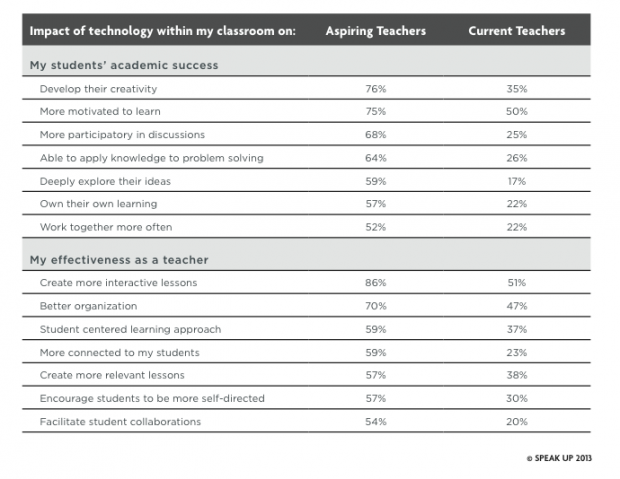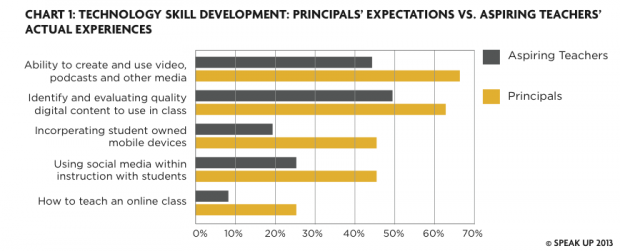With a new generation of teachers coming into the work force, there's a discrepancy between what principals expect of teachers-in-training and what they're actually learning in school.
A new Project Tomorrow report surveying principals concluded that they want to hire new teachers with creative ideas about how technology can be leveraged to create authentic and differentiated learning experiences. But student-teachers report that their tech training focuses only on simple management tools. At the same time, the report concludes that those who have the biggest influence on new teachers -- veteran educators -- don't always embrace new ways of using technology to engage students.
Only half of current working teachers believe they can use technology to motivate students to learn, compared to 75 percent of incoming teachers. Only 17 percent of current teachers believe technology can help students deeply explore their own ideas, compared to 59 percent of incoming teachers. And 26 percent of current teachers believe students can use technology to apply knowledge to problem-solving, compared to 64 percent of aspiring teachers.

Teachers-in-training say coursework focuses on technologies that help a teacher stay organized, rather than ways to engage students. In their methods courses, where teachers learn the mechanics of running a classroom, 71 percent report that they're taught to use simple word processing, spreadsheets and database tools, 64 percent report learning how to create multimedia presentations and 55 percent say they've learned how to use interactive whiteboards.
“Principals want new teachers to know how to use technology to create authentic learning experiences for students (75 percent) and how to leverage technology to differentiate instruction (68 percent) before they apply for a position at their school,” the report said.



